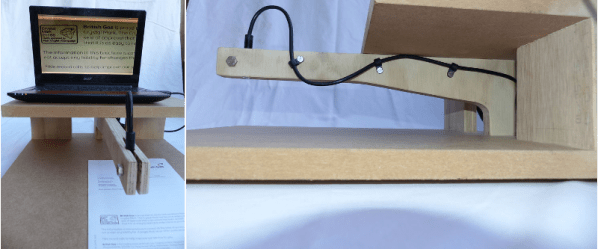Pixium Vision, a French company, has received the approval to begin in-human trials of a miniature wireless sub-retinal implant. Named PRIMA, the device may help those with advanced dry age-related macular degeneration get improvements in their eyesight. The company is in talks to also conduct trials in the United States.
The PRIMA implant is a photovoltaic chip about 2mm square and only 30 microns thick. That’s tiny, but the device has 378 electrodes. The patient uses a device that looks like a conventional pair of glasses but contains an integrated camera that sends data wirelessly to a small pocket-sized image processing computer. This computer then commands the glasses to send data to the implant via invisible infrared light. The chip converts the light to electrical impulses and conducts them to the optic nerve. You can see a video about how the system works below.












